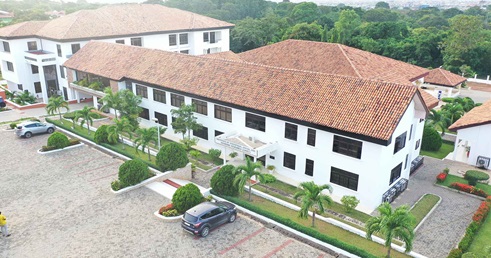
ISSER: GH¢1 trillion economy achievable but …
University of Ghana’s Institute of Statistical Social and Economic Research (ISSER) has described as good the effort of the government to increase the country's Gross Domestic Product (GDP) to GH¢ 1 trillion but says that is not sufficient to create a buoyant economy.
It said looking at the growth numbers, the GH¢ 1 trillion economy was achievable but until the economy moved from its current growth rate of three per cent to eight or 10 per cent per annum, it would not be able to reduce the poverty rate in the country since the multidimensional poverty was high.
The Director of ISSER, Prof. Peter Quartey, said: “What is important is not about the GDP growth, but GDP per capita.
The one trillion cedis looks huge but looking at the growth rate of 3 to 4 per cent, will that move people out of poverty?”
Budget review
Prof. Quartey was speaking at a review of the 2024 budget statement and economic policy of the government in Accra last Thursday.
“If the government wanted to see the economy doing well, then it has to look at the bottom 20 per cent, thus “the poor”, and be able to affect their lives, adding that the poverty rate of about 23 districts, especially in northern Ghana, was over 50 per cent.
Growing the economy to 8 per cent, he said, was achievable if government would rationalise spending and ensure value for money by having a regular procurement auditing which would save the taxpayer billions of cedis.
The review programme was attended by economic experts, academia, students and the media.
Reviewing the budget statement, Prof. Quartey said although the 2024 budget was a modest one as government had shown some commitment of reducing expenditure, the year 2024 would be a ‘test case’ of how government would manage its expenditure.
He said he country for a long time had not witnessed a debt exchange programme, escalation in inflation rate and depreciation, and so government needed to learn lessons from these economic challenges and do the right thing.
Preventing abuse
The ISSER director commended the government for the various tax reliefs, including sanitary pads, agriculture inputs and medical consumables among others.
He, however, called for constant monitoring to prevent abuse of these reliefs and be able to justify the rationale for the reliefs.
Curbing Importation
The country, he indicated, could not continue to throw hard-earned forex at certain imports that could effortlessly be obtained in the country and also when the local ones were even of more quality.
Ghanaians, he said, must be educated to understand that over-dependence on imports meant creating jobs for other countries.
